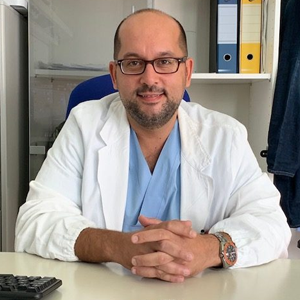An enlarged prostate can cause a host of problems, including urinary tract infections and difficulty urinating. Fortunately, several options are available to treat prostate enlargement. One of those options is transurethral resection of the prostate, also known as TURP.
This procedure involves using an instrument called a resectoscope. The surgeon inserts this instrument through the tip of the penis into the urethra. The camera and the blade attached to the end of the resectoscope allow the surgeon to see and trim away the excess prostate tissues responsible for the blockage.
Transurethral prostate resection is usually a viable treatment option for men experiencing moderate to severe urinary problems. Typically, this treatment helps solve the issues that fail to respond to medication.
Table of Contents
Why Is It Needed?
Transurethral resection of the prostate helps treat urinary problems occurring due to benign prostatic hyperplasia (BPH). Those problems mainly include:
- Prolonged urination
- Difficulty starting urination
- Frequent urges to urinate
- Persistent feeling of an unemptied bladder
- Urinary tract infections
- Intermittent urinary stream when urinating
Additionally, transurethral resection of the prostate can help treat or prevent infections caused by a blocked flow of urine, such as:
- Blood in urine
- Inability to urinate
- Urinary incontinence
- Recurring urinary tract infections
- Bladder stones
- Damage to the bladder or kidneys
Preparing for the Procedure
Your doctor will recommend you stop taking medications that might increase the risk of bleeding after surgery. These medications include:
- Nonprescription pain relievers such as naproxen sodium or ibuprofen
- Blood thinners such as clopidogrel or warfarin
Also, you may have to take prescription antibiotics to prevent any infections in the urinary tract.
Due to a catheter in your bladder and the impact of anesthesia, you won’t be able to drive back home after surgery. Therefore, be sure to arrange transportation beforehand.
You may not be able to go back to work or engage in strenuous physical activities for about six weeks after surgery. Generally, it is best to discuss recovery with your doctor.
What to Expect
Generally, the procedure involved in TURP can take 60 to 90 minutes. The surgeon will administer general or spinal anesthesia to make the treatment procedure painless. You may also get a dose of antibiotics if your surgeon finds it necessary.
During the Procedure
The surgeon will insert the resectoscope into the urethra through the tip of the penis and move it all the way forward to the prostate area. Hence, you won’t be receiving any incisions or cuts on the outside of the body.
After that, your surgeon will use the blade-bearing tip of the resectoscope to trim away any excess prostate tissues. The surgeon will remove one small piece at a time. After every tiny bit of the tissue is cut, the resectoscope releases a stream of irrigating fluids into the urethra, pushing trimmed pieces to the bladder. These pieces are later removed once the procedure is complete.
After the Procedure
Transurethral resection of the prostate is an inpatient procedure, meaning that you may have to stay in the hospital for one to two days.
The surgeon will place a urinary catheter in your urethra to keep the urinary pathway open. This catheter will remain in place for 24 to 48 hours. After that, you will be able to urinate on your own.
Your doctor will recommend some measures to avoid any post-procedural complications. These measures include:
- Eating high-fiber foods
- Drinking plenty of water
- Waiting for a few days before resuming any blood-thinning medication
- Avoiding sexual intercourse for about six weeks
- Avoiding intense physical activities
Our Expert
Schedule a Consultation
You are generally a good candidate for transurethral prostate resection if you experience urinary problems due to an enlarged prostate. So, you can discuss this treatment with an experienced urologist at Dubai Cosmetic Surgery Clinic. So book a consultation now.
Fill in the form to get a consultation
100% Financing with 0% Interest

